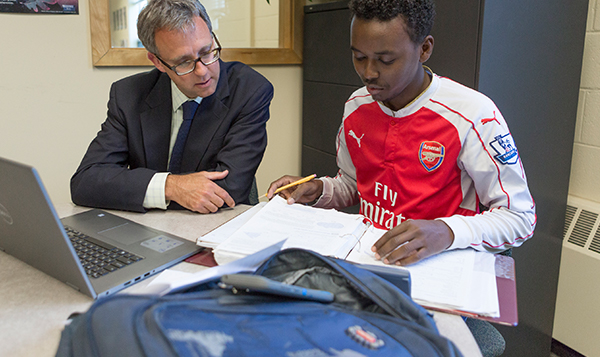Don’t Let Black Friday Savings Put You in the Red

Among debtors, 60% reported financial stress post-Black Friday, emphasizing the psychological toll of holiday overspending. – Federal Reserve Data
At some point when I lived in Spain I noticed the emergence of “Black Friday” sales and thought, “What?!” My brain sizzled with a Grinchy stammer, “They don’t have Thanksgiving, they don’t have the day after Thanksgiving… Yes, they have the end-of-year holidays with presents, but no day after Thanksgiving. So, how can they have Black Friday?”
It didn’t take long for me to grasp that it was a standard marketing gimmick, designed to make Spaniards believe they were getting some kind of deal, when all they were really getting was a demonstration of the timeless proverb about how a fool and his euros are soon parted.
Unofficial research done through my various English classes confirmed my suspicion that Spanish people had no idea what “Black Friday” meant in connection to retail shopping; they heard of it but didn’t know where, they assumed it was some kind of American thing tied to Christmas, and they absolutely planned to participate.
The most fascinating thing for me was how Spanish marketers pulled this rabbit out of a hat, slapped a 40% off sign on it, and watched as shoppers jumped. Of course, this was not because they were Spanish — how many Americans drop a chunk of their paycheck every May 5th for reasons they probably can’t explain?
Black Friday Savings: What part of that should be in air quotes?
First of all, let me reaffirm that I am not anti-capitalism, so I don’t have anything against companies doing their part which is to make profits. I’m not sure it’s the best system, but it’s the best we have. I am, however, pro personal finance success, and those two things often work against each other. Right, I’m invoking the Paradox of Thrift; consumer spending is critical to our economic success as a country but controlling our own spending is critical to our individual financial success.
I recommend doing your best to ruin the economy this holiday season, and a key part of that process is to leave Black Friday (and all other gimmicks) behind.
More from the Federal Reserve:
- 18 million Americans reported using high-interest payday loans to cover Black Friday spending in 2023.
- Black Friday-related bankruptcies saw a 7% increase year-over-year, with analysts linking the trend to escalating borrowing costs.
- Late payment fees from BNPL (Buy Now Pay Later) plans during Black Friday totaled $150 million, a 20% jump from 2022.
Staggering. That’s $150 million that didn’t buy anything. $150 million that didn’t go towards retirement plans, wasn’t used to pay off debt, saved for a car, invested for education, etc.
Reject FOMO and Say Goodbye to Black Friday Blues
I like to give gifts. I like to buy things for myself. What I like even more is feeling good before, during, and after spending. The great marketing machine that surrounds us wants us to believe that we have to “get the deal” in order to be happy about what we buy. “Don’t miss this Black Friday deal – up to 40% off” really means “If you don’t get something now and at this price, you will somehow be less happy, you will be missing out, and we hope you didn’t notice that the 40% is often deceiving.”
No judgement, no shame. I have played every role in this play (including waiting in line at 3 am in order to save $50 on a set of speakers), but the one I’ve been playing for many years now has been the most fulfilling. The only things I’ve missed by not participating in Black Friday or any other sales gimmicks are the hole in my budget, the drain on my bank account, and the weight of that bloated January 15th credit card bill.
Practical Tips for Managing Holiday Spending
Leave FOMO behind – this is not easy, and I don’t want to minimize the potential difficulty involved in understanding the psychological connections between FOMO, Black Friday pressure, and our financial health. However, the behavioral piece is one of the biggest factors when reigning in any type of want-based consumption, and if it’s not tackled, other strategies will fall short. To dig into your relationship with money, I recommend a book by Dr. Sarah Newcomb: Loaded: Money, Psychology, and How to Get Ahead without Leaving Your Values Behind. I’ll throw in one of her articles as a bonus.
Budget, budget, budget – work potential purchases into your budget without spending more than you are taking in. Make cuts here to pay for there, etc. If your budget can’t handle it, walk away.
Pay cash and/or only use plastic for budget-friendly buys – this is an extension of the budget comment. Watch out for thoughts like, “Put in on the Visa and pay for it later.”
Research – if you’ve determined that your budget can afford the item and/or that it is a need rather than a want, put that old internet to good use and see if the Black Friday price is actually special. Most research that I’ve seen (as well as my own experience) suggests that prices have a way of creeping up in the weeks leading to Thanksgiving – so 40% off of an inflated price is not really a deal at all.
*****
It’s a never-ending balancing act. It’s nice to buy things. It’s even nicer to buy things for someone else. It’s nice to receive gifts. I like gifts! But when gifting (and spending in general) leads to financial stress, that’s not a gift for anyone.
About the Author:
Steve has worked on financial literacy efforts in Maine since 2004, and in July 2023 he started at FAME as a Financial Education Programs Specialist. He is an Accredited Financial Counselor (AFC®), a WISE-Certified Personal Finance Educator, has a B.S. in economics from Southern Connecticut State University, an MBA from the University of Hartford, and served as a U.S. Peace Corps Volunteer.
In the fall of 2003, he started a 20-year connection to the Waynflete School in Portland, where he taught math and personal finance, advised middle and upper school students, and coached baseball. Steve worked with students to create the Finance Club and an award-winning LifeSmarts team (Nationals 2013, 2014, and 2015). In 2011, Steve coached a Waynflete team to victory in the Boston Federal Reserve Economics Cup Challenge.
Steve was named Maine Jump$tart Financial Educator of the Year for 2012, was the keynote speaker at the Maine Jump$tart Annual Teacher Conferences in 2015 and 2023, and was Maine Jump$tart’s training coordinator from 2017 to 2023.
Steve and his family moved to Seville, Spain in July 2016 where he taught English and business English and learned many new personal finance lessons. He now lives in Portland with his wife and their son.





